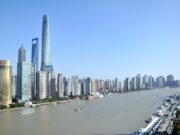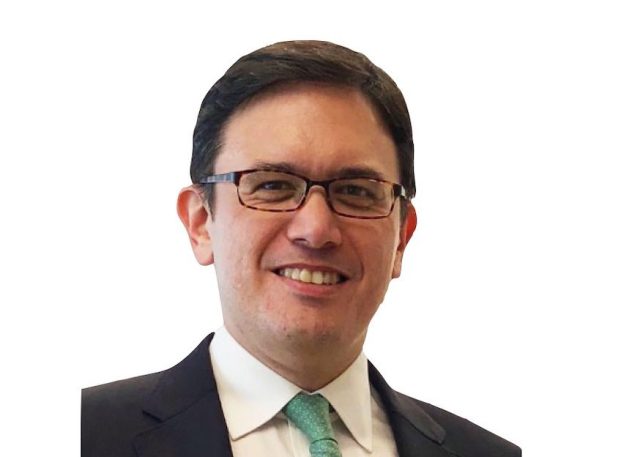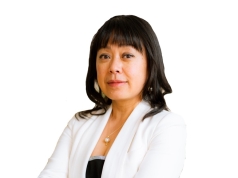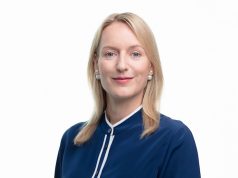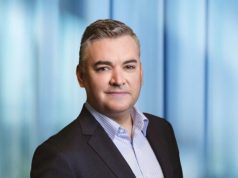AllianceBernstein David Wong on Equities & Investment Outlook in 2023 & 2024, Top Picks in Asian Equities, Impact of High Interest Rate, Effectiveness of Popular Investment Themes ESG & Impact investing
Introduction – At the start of 2023, Asia seems set on a path for recovery & growth in 2023, with the re-opening of China and strong growth in Southeast Asia. In the West (United States & Europe), higher interest rates, politics, trade differences, leadership transition, Russia & Ukraine conflict, pressure for energy transition and the need to fully exit energy dependency from Russia, all these should had negatively impacted the Western economies and alongside the stock markets. But with 2023 almost over, United States & European banks and energy companies are reporting record profits, despite the early banking crisis in March 2023 (Silicon Valley Bank, Signature Bank, First Republic Bank, Credit Suisse). In United States, S&P 500, Dow Jones, Nasdaq are outperforming most Asian indexes, with the exception of Nikkei 225.
Exclusive Interview – We speak to David Wong, AllianceBernstein Senior Investment Strategist on equities & investment outlook in 2023 & 2024, top picks in Asian equities, risks in equity markets, impact of high interest rate and effectiveness of popular investment themes – ESG, Impact investing, Climate Solutions, Low-Carbon Economy, Responsible Investing & Active Ownership. David Wong is AllianceBernstein Senior Investment Strategist, Head of Asia Business Development for Equities. David is also the Co-Chair of AllianceBernstein Responsible Investing Steering Committee for Asia-Pacific. AllianceBernstein is a leading global investment-management and research firm, operating in 26 countries and jurisdictions, with $613 billion in Assets under Management (AUM) globally.
” investors have historically done best when they are long-term equity investors – the US, based on S&P 500 data, has compounded at 10.5% over the last century, despite 17 recessions, a great depression, a world war and a pandemic “
2023 Major Stock Indices YTD Performance (22/9/23):
- S&P 500: +12.5%
- Dow Jones: +2.4%
- Nasdaq: +26.2%
- FTSE 100: +3.1%
- Nikkei 225: +24.1%
- SSE: +1.4%
- SZE: -3.1%
- Hang Seng Index: -8.7%
- SENSEX: +8.4%
- STI: -1.4%
- ASX 200: +0.4%
Key Events in 2022 & 2023:
- Russia & Ukraine Conflict
- Fed Interest Rate Increase
- Banking Crisis (Silicon Valley Bank, Signature Bank, First Republic Bank, Credit Suisse)
2022 & 2023 Events Rewind:
- February 2022 – Russia began military operations in Ukraine.
- March 2022 – Federal Reserve (Fed) increased key interest rate by 0.25% to the range of 0.25% to 0.5% range.
- End December 2022 – Fed had increased the key interest rate to 4.25% to 4.5% range.
- March 2023 – Silicon Valley Bank collapsed and placed under receivership of United States Federal Deposit Insurance Corporation (FDIC)
- March 2023 – Signature Bank collapsed and placed under receivership of United States Federal Deposit Insurance Corporation (FDIC)
- March 2023 – UBS acquired Credit Suisse for CHF 3 billion
- May 2023 – First Republic Bank sold to JP Morgan
- 5th May 2023, the World Health Organization (WHO) declared the end to COVID-19 as a public health emergency after more than 3 years. COVID-19 was declared a pandemic by WHO on 31st March 2020.
- July 2023 – Fed increased the key interest rate to 5.25% to 5.5% range.
David Wong, AllianceBernstein Senior Investment Strategist

David Wong is a Senior Vice President, Senior Investment Strategist, Head of Asia Business Development for Equities, and Co-Chair of AB’s Responsible Investing Steering Committee in Asia-Pacific. He joined AB (AllianceBernstein) in 2015, bringing 2 decades of experience in global equity markets to the firm.
Prior to joining AB, Wong was a partner at Janchor Partners, a Hong Kong–based long/short equity hedge fund with $2 billion in assets under management (AUM). Before that, he set up the Hong Kong office for GMT Capital, an Atlanta-based long/short equity hedge fund with $5 billion in AUM, where he served as portfolio manager and head of Asian investments. Over Wong’s 8 years at the 2 hedge funds, he was responsible for global investments in technology stocks and served as a generalist portfolio manager for the Asia-Pacific region, including Japan. He was also the founder and managing director of Mobile Adventures, a pan-Asian wireless content company. Wong started his career as an equity research analyst at Bankers Trust and Deutsche Bank; at Deutsche, he managed a team of five associates as the firm’s regional semiconductor analyst. He holds a BA in political science from Yale University. Location: Singapore. AllianceBernstein is a leading global investment-management and research firm, operating in 26 countries and jurisdictions, with $613 billion in assets under management globally.
Key Highlights (Below for Interview)
On Investment & Equity Outlook
- Recession call – Investors came into 2023 worried about earnings risk due to fears of an imminent recession, which proved to be either early or incorrect, and in investing, it is often indistinguishable to be early, or wrong, on a recession call.
- Investing in a recession or slowing economy in 2023 & 2024 – Investors should have some faith that even in a slowing economy, that there are going to be opportunities to own companies that can grow their earnings.
- High interest rate (borrowing cost) – Both consumers & publicly-listed corporates have taken advantage of historically low borrowing rates in recent years to have really quite longer-dated maturities at low fixed costs.
- Impact of high interest rate & equity risks – Most publicly listed companies in developed markets have generally healthy balance sheets, and with long-dated maturities.
- Concern on private equity – Companies have generally financed themselves aggressively with floating rate debt. But we’ve not heard news of widespread defaults there so far.
- Potential widespread property crisis – We are not expecting any massive property crisis at this time.
- Investing in equities over 100 years – investors have historically done best when they are long-term equity investors – the US, based on S&P 500 data, has compounded at 10.5% over the last century, despite 17 recessions, a great depression, a world war and a pandemic.
- Investment philosophy – I came from a very fundamental background, characterized by long-term investing, on both the short and the long side.
- On more investment frauds – I would question whether we have more investment frauds now – I remember a variety of scandals early on in my career at the beginning of the century!
- On managing investment fraud – We believe there is no substitute for good old-fashioned due diligence, and kicking the tires on an investment and seeing whether the facilities or products that a company claims are indeed where or what they should be.
- Investment Advice 1 – Investment success is not graded by the degree of difficulty – one should focus on investments that were ultimately easier to forecast, and where a variety of things would need to go right for the investment to work.
- Investment Advice 2 – One should never trade against one’s long-term view.
” We believe there is no substitute for good old-fashioned due diligence ”
” one should focus on investments that were ultimately easier to forecast “
On US & Asian Equities, Top Sector Picks, Investment Themes
- On US equity market – We particularly like the US equity market because it is probably the least sensitive market to the macro-economy, with 36% of the market in tech-related industries.
- US equity – Investors should consider having the majority of their equity exposure in the US.
- Asia investors exposure to US market – Asian investors have had much less due to their home market bias.
- Sectors to invest – Developed market defensive sectors and companies to be particularly attractive right now. Healthcare, staples and utilities are all trading in the most attractive third of valuations against the broader markets in developed market equities.
- On tech & healthcare – Just gone through earnings recessions are now in a recovery phase.
- On healthcare sector – We also like healthcare, which has been the second-best performing sector since the GFC (2008 Global Financial Crisis)
- On US equity returns – The longer the time horizon, the more US equity returns converge to its long-term annualized 10%, which has been the case going back to 1920.
- Equities daily performance – On any given day, equities have a 48% chance of going down, but equities are also the one asset class where the longer one owns it, the better the chances of success.
- Asian equities returns – The returns of Asian equities over the last decade have been an anaemic 5%, owing mostly to lower earnings growth and declining returns on equity.
- Asian equities forecast – We can no longer expect strong Asian earnings growth of the noughties (2000 to 2019), only because China is likely to grow at a more sedate.
- Asian equities outperformance – It is possible to build an Asia portfolio that can grow faster than the 4-5% of the last decade.
- On ESG – Investors who want to invest both for returns and better outcomes for society and the environment should educate themselves on when any strategy is likely to outperform, when it is likely to lag.
- Investing in specific investment themes – We would caution against committing too much capital to a theme that is overly narrow or near term in nature – it is likely to be more volatile over the long run.
- On long-term alpha & outperformance through investment themes – We have conviction that sustainable thematic investing is one of those methods. Themes like healthcare, not just in term of successful therapies but also affordable access, can be fantastic, scalable places to find solid investment ideas that can provide long-term growth.
- On digitization & AI themes – Finding ways of integrating people around the world into the global economy and raising their productivity through digitization or training should also offer opportunities as generative AI (Artificial Intelligence) takes off and as the global population continues to grow.
- On climate themes – Investing in long-term winners in providing solutions against climate change is also an area where we can find returns, when these solutions are tackling the world’s gravest global problem.
” On any given day, equities have a 48% chance of going down “
Interview with David Wong, AllianceBernstein Senior Investment Strategist:
Since COVID-19 in 2020, the global investment dynamics had changed, driven by a changing world in many ways. Most institutional investors, investment managers, advisors and professional investors had perhaps visualised a more predictable or orderly recovery and growth, targeting 10%, 20% or even 30% equity returns in 2023 or 2024. But with high interest yield (cash > 5%) for investors that may now reduce allocation into equities (returns & risks), higher borrowing costs for companies which may hurt future profits and tightening (reduced) corporate investments, are investors facing a shrinking pool of equities to invest into?
On Equities & Investment Outlook in 2023 & 2024, Top Picks in Asian Equities
1. With high interest yield (cash > 5%) for investors, higher borrowing costs for companies which may hurt profits and tightening (reduced) corporate investments, are investors facing a shrinking pool of equities to invest into? Should investment managers & investors allocate less to equities?

David: One fascinating element of this rate hiking cycle has been how both consumers and publicly-listed corporates have taken advantage of historically low borrowing rates in recent years to have really quite longer-dated maturities at low fixed costs. From a fundamental perspective, there has been no impact to increased interest expenses for most public companies, and should not for several years based on maturity schedules that would require refinancing at higher rates. If there is an area that could potentially be a source of concern, it would be in the private equity space, where companies have generally financed themselves aggressively with floating rate debt. But we’ve not heard news of widespread defaults there so far.
We are very constructive on equities. We particularly like the US equity market because it is probably the least sensitive market to the macro-economy, with 36% of the market in tech-related industries, and where tech and now healthcare have just gone through earnings recessions are now in a recovery phase. While the US equity market only offers an estimated 4% free cash flow yield today, based on current consensus forecasts and a ten-year FCF growth rate of 7%, we would estimate the market FCF yield to be offering 6% in 4 years’ time; by contrast that current cash rate of 5% will have halved based on market estimates. As has always been the case over the last 100 years, investors have historically done best when they are long-term equity investors – the US, based on S&P 500 data, has compounded at 10.5% over the last century, despite 17 recessions, a great depression, a world war and a pandemic.
” We particularly like the US equity market because it is probably the least sensitive market to the macro-economy, with 36% of the market in tech-related industries, and where tech and now healthcare have just gone through earnings recessions are now in a recovery phase “
2. What is the investment outlook for 2024 & beyond? What are the key opportunities & risks?

David: We think investors came into 2023 worried about earnings risk due to fears of an imminent recession, which proved to be either early or incorrect, and in investing, it is often indistinguishable to be early, or wrong, on a recession call. We do expect top line growth to slow down for US and global equities in line with slowing nominal GDP growth, but for some sectors that are simply not very macro sensitive, such as tech or healthcare, to provide positive year-over-year growth.
We think that investors should have some faith that even in a slowing economy, that there are going to be opportunities to own companies that can grow their earnings. But we think investors should shift their concerns more towards valuation. Investors can balance quality with reasonable valuations at this time– and we find developed market defensive sectors and companies to be particularly attractive right now – healthcare, staples and utilities are all trading in the most attractive third of valuations against the broader markets in developed market equities.
” we find developed market defensive sectors and companies to be particularly attractive right now – healthcare, staples and utilities “
3. Which sector and region will be the top performing equites in 2024, globally and in Asia? And for the next 6 or 7 years till end of decade – 2030?

David: As mentioned, investors should consider having the majority of their equity exposure in the US, which should not be controversial, given that the US makes up over 60% of the MSCI ACWI index, but yet we find many Asian investors have had much less due to their home market bias – and they have missed out. We think markets that offer the best risk-adjusted returns deserve a closer look. And while past performance doesn’t equal future returns, the last decade has seen the US offer a Sharpe ratio of 0.5 as opposed to the 0.15 range for all other markets, thanks to a shareholder return culture that has encouraged buybacks that have enhanced earnings as well as supported performance. US Equities, with US$800 billion in gross buybacks annually, is effectively the only asset class in the world that has a self-funded quantitative easing program that never needs to be paid back.
We definitely still like technology as a sector, but especially given the performance, one has to be selective. We would note that some of the top performers this year, almost exclusively tech, have enjoyed strong earnings recovery, while others have seen growth stall – we think it would be best to differentiate between what to own, and what not to own, in the tech world on future earnings conviction. There is clearly secular growth to be found in tech, but it is a sector prone to disruption from new entrants too – we would prefer companies where we would feel comfortable making a 5-year forecast of revenues and earnings.
We also like healthcare, which has been the second-best performing sector since the GFC (2008 Global Financial Crisis), has historically provided downside mitigation in every recession, has secular growth thanks to aging demographics in Asia, Europe and America, and today is available at a slight discount to the S&P 500.
” investors should consider having the majority of their equity exposure in the US, which should not be controversial, given that the US makes up over 60% of the MSCI ACWI index, but yet we find many Asian investors have had much less due to their home market bias “
4. What should be a more realistic target equity returns for investors going forward? 7%, 10%, 12% or more?

David: The longer the time horizon, the more US equity returns converge to its long-term annualized 10%, which has been the case going back to 1920. On any given day, equities have a 48% chance of going down, but equities are also the one asset class where the longer one owns it, the better the chances of success. Over a 10-year timeframe, rolling since 1925, we’d find that an investor would have had only a 7% of any capital loss, and if one had owned a high quality (by that we mean high profitability) portfolio, research from Bank of America shows the chance of failure over any given decade would have been zero.
We find the equity returns for any market generally approximate the long-term earnings growth. The US has offered the highest EPS growth, hence in our view it has also enjoyed the highest returns. MSCI World has had a long-term average return of 8%, in line with the earnings growth of its ex-US constituents being lower. The returns of Asian equities over the last decade have been an anaemic 5%, owing mostly to lower earnings growth and declining returns on equity. The next 10 years for Asia could be quite different, but we think one is better off sticking to companies that one has high conviction in may continue to grow their earnings at near double-digit levels.
” The longer the time horizon, the more US equity returns converge to its long-term annualized 10%, which has been the case going back to 1920 “
5. Asian equities, China & India equities have often been picked to be top performers, but the top US companies continue to outperform. Can the top Asian equities outperform the top US equities in the next 10 years?

David: As mentioned above, a lot depends on the earnings growth that Asian companies can generate. We can no longer expect strong Asian earnings growth of the noughties (2000 to 2019), only because China is likely to grow at a more sedate, OECD-level of growth going forward as a base case scenario, unlike the supercharged double-digit growth rates of the first decade of the 21st century.
” We can no longer expect strong Asian earnings growth of the noughties (2000 to 2019), only because China is likely to grow at a more sedate “
We think it is possible to build an Asia portfolio that can grow faster than the 4-5% of the last decade. But one will need to buy companies that are high quality and will continue to do so, that would make global investors sit up and take notice, improve the valuation, and we would need to feel that they could sustain a double-digit growth rate to earnings that is unlikely to be derailed by macro or government policy.
On Risks in Equity Markets, Impact of High Interest Rate
6. Given the higher interest rate already causing an early banking crisis in March 2023 (Collapse of Silicon Valley Bank, Signature Bank, First Republic Bank, Credit Suisse), will the high interest rate & its impact on company debts severely impact equities and bonds, and trigger a massive property crisis and impact the wider economy?

David: The 1990s saw the failure of numerous savings and loan institutions at the beginning of the decade and episodic weakness in commercial real estate with some bankruptcies, and yet that was one of the strongest decades for equity market performance. We would not conflate the struggles of some less well managed financial institutions with the health of the equity market as a whole. We think most publicly listed companies in developed markets have generally healthy balance sheets, and with long-dated maturities.
We are not expecting any massive property crisis at this time. In fact, because residential property owners are loath to refinance mortgages taken out at much lower rates, secondary market transactions in the US are very low and it has caused a boom to homebuilders that are catering for most of the demand for new homes. The Fed may have inadvertently strengthened the health of the property market, at least in the near term.
” 1990s saw the failure of numerous savings and loan institutions at the beginning of the decade and episodic weakness in commercial real estate with some bankruptcies, and yet that was one of the strongest decades for equity market performance “
On ESG, Impact Investing, Climate Solutions
7. In recent years, there are new & popular investment themes including ESG, Impact investing, Climate Solutions, Low-Carbon Economy, Responsible Investing & Active Ownership. Have the investment themes translate into actual outperformance? Or do these investment themes require a long-term horizon such as, another 5 years or 10 years?

David: We at AllianceBernstein have seen enough examples of where the integration of material E, S and G risks and opportunities into our investment decision-making process to know that it is always good for our clients to do better due diligence. We are all about fiduciary responsibility when it comes to our clients and that includes our ESG integration processes too.
How sustainable and climate strategies specifically, which we at AB call our ‘portfolios with purpose’, have done is another matter. Many sustainable equity strategies have a growth tilt, and unfortunately many critics of such strategies wrongly attributed the underperformance of such growth-tilted strategies last year to their being sustainable, rather than to their being managed with a growth style. I don’t think anyone can argue that all sustainable strategies either outperform or that they do not – it depends ultimately on the philosophy, process, and the capabilities of the investment team.
Investors who want to invest both for returns and better outcomes for society and the environment should educate themselves on when any strategy is likely to outperform, when it is likely to lag, and to come to their own conclusions about whether it is likely to deliver long-term outperformance. We would caution against committing too much capital to a theme that is overly narrow or near term in nature – it is likely to be more volatile over the long run.
” caution against committing too much capital to a theme that is overly narrow or near term in nature – it is likely to be more volatile over the long run “
8. Can these investment themes be really effective in the long-run against the backdrop of rising geo-political differences, changing global economic landscape, anti-trust, fraud, shift to regionalisation or domestic production, green-washing, leadership transfer, political changes.

David: We believe that there are several ways we can deliver long-term alpha and outperformance to our clients. We have conviction that sustainable thematic investing is one of those methods. Themes like healthcare, not just in term of successful therapies but also affordable access, can be fantastic, scalable places to find solid investment ideas that can provide long-term growth.
- Sustainable thematic investing
- Healthcare
- Integrating people around the world into the global economy
- Raising productivity through digitization or training
- Generative AI (Artificial Intelligence)
- Solutions against climate change
Finding ways of integrating people around the world into the global economy and raising their productivity through digitization or training should also offer opportunities as generative AI (Artificial Intelligence) takes off and as the global population continues to grow. And investing in long-term winners in providing solutions against climate change is also an area where we can find returns, when these solutions are tackling the world’s gravest global problem.
” there are several ways we can deliver long-term alpha and outperformance to our clients. We have conviction that sustainable thematic investing is one of those methods “
Final Words
You have an extraordinary investment & entrepreneurial background, not only with more than 20 years of equity markets experience, but had managed long / short equity at hedge funds and also founded a wireless content company.
9. Do you look at investing in equities differently from other equity portfolio managers? Do you have a simpler strategy or process? Or do you look at a wider range of data?

David: I think I came from a very fundamental background, characterized by long-term investing, on both the short and the long side. Some long-only investors have the misconception that long-short managers go long high-quality companies and short low-quality ones. Yet shorting low-quality companies at the wrong time can lead to catastrophic investment outcomes as your problem, your short, gets much bigger.
One learns over time pattern recognition of companies that fit into your investment process, that are under-appreciated by the market, and that will provide a catalyst for correcting that under-appreciation.
While I worked with lots of smart investors prior to AB, what I didn’t appreciate were all the quantitative tools that a firm like AB brought to the table to enhance that pattern recognition, and the chances of success of a fundamental investor. These include not just factors but now alternative data sets that our in-house data scientists work with our investors on, every day.
” I came from a very fundamental background, characterized by long-term investing, on both the short and the long side “
10. There are more reported investment frauds, some committed by the largest companies, with even the largest institutional investors and sophisticated investors being impacted. Is this inevitable and a natural journey in investments? Or can more be done by investment managers and investors to reduce the risk of allocating investments into potentially fraudulent investments?

David: I would question whether we have more investment frauds now – I remember a variety of scandals early on in my career at the beginning of the century! There may be more ways to perpetrate fraud using technology, but there are also more ways to detect them too, whether it be software or simply social media.
We believe there is no substitute for good old-fashioned due diligence, and kicking the tires on an investment and seeing whether the facilities or products that a company claims are indeed where or what they should be. The nice thing is that we can use big data, like satellite imagery, for instance, to enhance our understanding of a company’s business patterns.
” I would question whether we have more investment frauds now – I remember a variety of scandals early on in my career at the beginning of the century! “
11. When it comes to managing investments or investing into equities, do you have any advice for institutional investors, investment managers, advisors or professional investors?

David: There are two pieces of advice my first mentor in the hedge fund world, my boss Tom Claugus, gave me. One is that investment success is not graded by the degree of difficulty – one should focus on investments that were ultimately easier to forecast, and where a variety of things would need to go right for the investment to work – that meant keeping a healthy distance from petrochemicals, for instance! The other was that one should never trade against one’s long-term view. I very much still believe that today.
” one should focus on investments that were ultimately easier to forecast “
12. Finally, How do you manage your investments? Do you have time to manage?

David: I prefer to place my faith in my favourite portfolio managers at AB (AllianceBernstein)!
Thank you David for providing key insights into equities & investment outlook in 2023 & 2024. David Wong is AllianceBernstein Senior Investment Strategist, Head of Asia Business Development for Equities. David is also the Co-Chair of AllianceBernstein Responsible Investing Steering Committee for Asia-Pacific. AllianceBernstein is a leading global investment-management and research firm, operating in 26 countries and jurisdictions, with $613 billion in Assets under Management (AUM) globally.
David Wong, AllianceBernstein Senior Investment Strategist

David Wong is a Senior Vice President, Senior Investment Strategist and Head of Asia Business Development for Equities, and Co-Chair of AB’s Responsible Investing Steering Committee in Asia-Pacific. He joined AB in 2015, bringing two decades of experience in global equity markets to the firm. Prior to joining AB, Wong was a partner at Janchor Partners, a Hong Kong–based long/short equity hedge fund with US$2 billion in assets under management (AUM). Before that, he set up the Hong Kong office for GMT Capital, an Atlanta-based long/short equity hedge fund with $5 billion in AUM, where he served as portfolio manager and head of Asian investments. Over Wong’s eight years at the two hedge funds, he was responsible for global investments in technology stocks and served as a generalist portfolio manager for the Asia-Pacific region, including Japan. He was also the founder and managing director of Mobile Adventures, a pan-Asian wireless content company. Wong started his career as an equity research analyst at Bankers Trust and Deutsche Bank; at Deutsche, he managed a team of five associates as the firm’s regional semiconductor analyst. He holds a BA in political science from Yale University. Location: Singapore
AllianceBernstein
 AllianceBernstein (Singapore) Ltd is a wholly owned subsidiary of AllianceBernstein L.P. (“AB”). AB is a leading global investment-management and research firm, operating in 26 countries and jurisdictions, with US$613 billion in assets under management globally (as of 30 September 2022). We’re fully invested in being a firm that clients can trust to deliver better outcomes, whether they’re individual investors or the world’s biggest institutions. We bring together a wide range of insights, expertise and innovations to advance the interests of our clients. And we’re doing it responsibly – from how we act to how we invest – because outcomes mean more than financial returns. By tapping a global network of diverse perspectives, we design innovative solutions tailored to meet investors’ unique needs and engineered to deliver the performance they expect. Further details on AllianceBernstein can be found here abfunds.com.sg
AllianceBernstein (Singapore) Ltd is a wholly owned subsidiary of AllianceBernstein L.P. (“AB”). AB is a leading global investment-management and research firm, operating in 26 countries and jurisdictions, with US$613 billion in assets under management globally (as of 30 September 2022). We’re fully invested in being a firm that clients can trust to deliver better outcomes, whether they’re individual investors or the world’s biggest institutions. We bring together a wide range of insights, expertise and innovations to advance the interests of our clients. And we’re doing it responsibly – from how we act to how we invest – because outcomes mean more than financial returns. By tapping a global network of diverse perspectives, we design innovative solutions tailored to meet investors’ unique needs and engineered to deliver the performance they expect. Further details on AllianceBernstein can be found here abfunds.com.sg
Important Information
The information contained here reflects the views of AllianceBernstein L.P. or its affiliates and sources it believes are reliable as of the date of this publication. AllianceBernstein L.P. makes no representations or warranties concerning the accuracy of any data. There is no guarantee that any projection, forecast or opinion in this material will be realized. Past performance does not guarantee future results. The views expressed here may change at any time after the date of this publication. This document is for informational purposes only and does not constitute investment advice or trade recommendations and do not necessarily represent the views of all AB portfolio-management teams. AllianceBernstein L.P. does not provide tax, legal or accounting advice. It does not take an investor’s personal investment objectives or financial situation into account; investors should discuss their individual circumstances with appropriate professionals before making any decisions. This information should not be construed as sales or marketing material or an offer of solicitation for the purchase or sale of, any financial instrument, product or service sponsored by AllianceBernstein or its affiliates.
This document has been issued by AllianceBernstein (Singapore) Ltd. (“ABSL”, Company Registration No. 199703364C). AllianceBernstein (Luxembourg) S.à r.l. is the management company of the portfolio and has appointed ABSL as its agent for service of process and as its Singapore representative. AllianceBernstein (Singapore) Ltd. is regulated by the Monetary Authority of Singapore. This advertisement has not been reviewed by the Monetary Authority of Singapore.
For Accredited Investors, Institutional Investors and financial representative use only. Not for inspection by, distribution or quotation to, the general public.
Sign Up / Register
Caproasia Users
- Manage $20 million to $3 billion of assets
- Invest $3 million to $300 million
- Advise institutions, billionaires, UHNWs & HNWs
Caproasia Platforms | 11,000 Investors & Advisors
- Caproasia.com
- Caproasia Access
- Caproasia Events
- The Financial Centre | Find Services
- Membership
- Family Office Circle
- Professional Investor Circle
- Investor Relations Network
Monthly Roundtable & Networking
Family Office Programs
The 2025 Investment Day
- March - Hong Kong
- March - Singapore
- July - Hong Kong
- July - Singapore
- Sept- Hong Kong
- Sept - Singapore
- Oct- Hong Kong
- Nov - Singapore
- Visit: The Investment Day | Register: Click here
Caproasia Summits
- The Institutional Investor Summit
- The Investment / Alternatives Summit
- The Private Wealth Summit
- The Family Office Summit
- The CEO & Entrepreneur Summit
- The Capital Markets Summit
- The ESG / Sustainable Investment Summit



